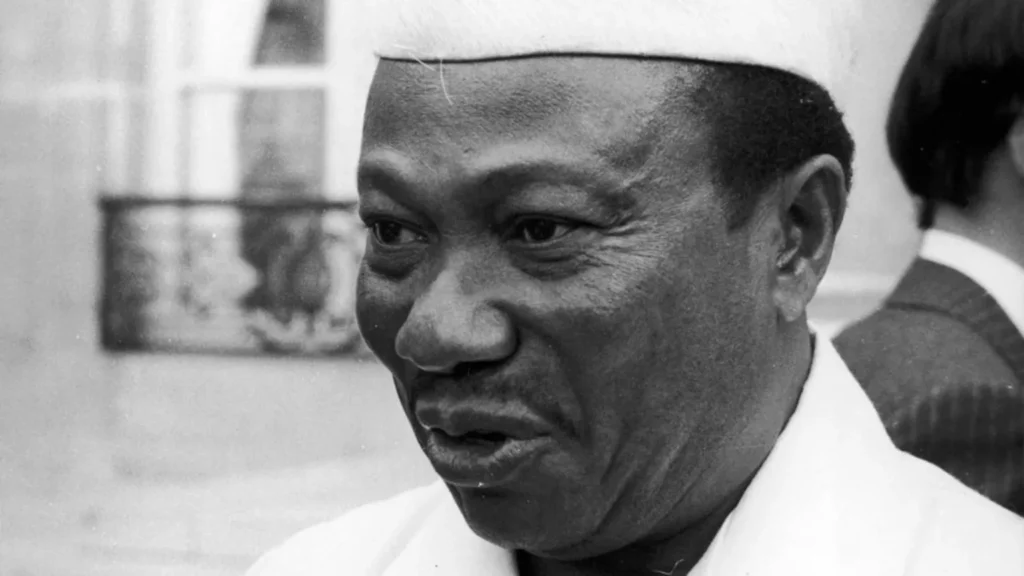LIBERIA’s former President William Tolbert has had a symbolic reburial, 45 years after he was murdered during a coup and his body was believed to have been dumped in a mass grave.
Ten days after the president’s killing, following trials by a kangaroo court, 13 of his cabinet were stripped, tied to stakes and then executed by a firing squad on a beach next to an army barracks in the capital, Monrovia.
None of the 14 corpses has been found but each man got a state funeral at a ceremony attended by President Joseph Boakai and other dignitaries.
The event was seen as an act of reconciliation and part of a process of the country coming to terms with its violent recent past.
“It is an act of national conscience. It is a moment to acknowledge historical wrongs and to reaffirm collective commitment to the truth, justice and reconciliation,” President Boakai said.
A grave dug for the funeral was left empty and unsealed, in case any of their remains are ever found.
The 12 April 1980 coup, in which 28-year-old Sgt Samuel Doe took power, ended well over a century of political dominance by the minority Americo-Liberians, the descendants of freed black slaves who had come from the US in the 1800s.
Tolbert’s nine-year presidency was marked by growing dissatisfaction with the ethnic inequalities.
His overthrow came at the start of a period of instability in Liberia, culminating in two devastating civil wars, that finally ended in 2003.
Doe himself met a violent death at the hands of rebels in 1990. His reburial in his home town last week was also ordered by the president.
“This is not just a burial; it is a moment of national reflection, a time to reconcile with our history, to heal from our wounds, and to remember with respect and purpose,” Boakai said at Doe’s funeral.
For the families of those executed in 1980, Tuesday’s ceremony was both an act of remembrance and a way of bringing some respect to those who died.
“It has been 45 years and the pain is still fresh,” prominent lawyer Yvette Chesson-Gibson, daughter of executed Justice Minister Joseph Chesson, told the BBC.
She emphasised that Tuesday’s reburials were the start of a long-term process.
“This is not just a ceremony, it is the beginning of a closure. Reconciliation is not an event,” she said.
“There are many facets to healing, but for us primarily this is just one of the many ways we continue to pay homage to deserving Liberian fallen heroes,” Bindu Dennis, the daughter of Tolbert’s Foreign Minister Charles Cecil Dennis, said.
“Our fathers were simply murdered in one of the world’s most despicable and inhumane public acts of brutality, violence and cruelty born out of an ugly spirit of greed for political power.
“As long as you understand that closure doesn’t mean forgetting, then we’re on the same page.”
As the 14 men were shot dead, their families did not want a 21-gun salute at Tuesday’s funeral. Instead, 21 trumpets were played.







